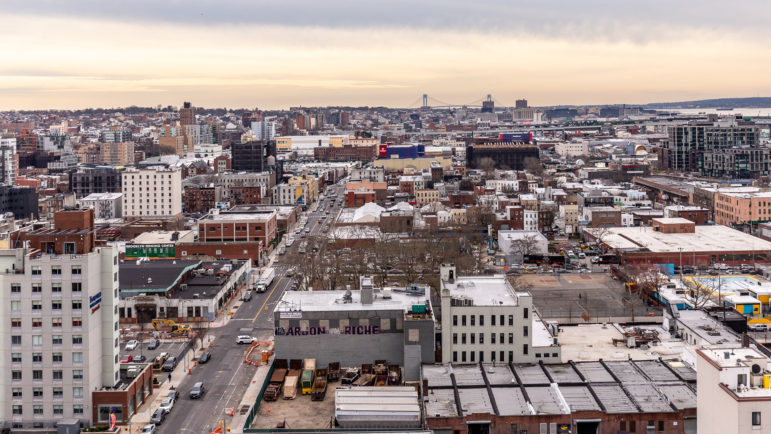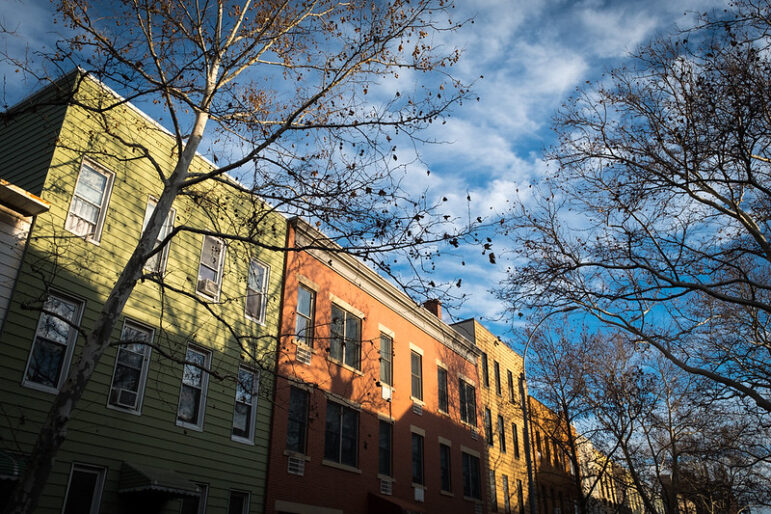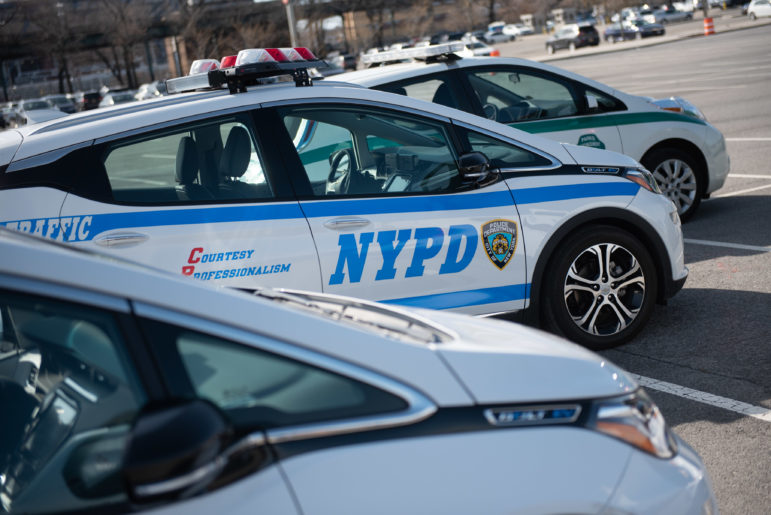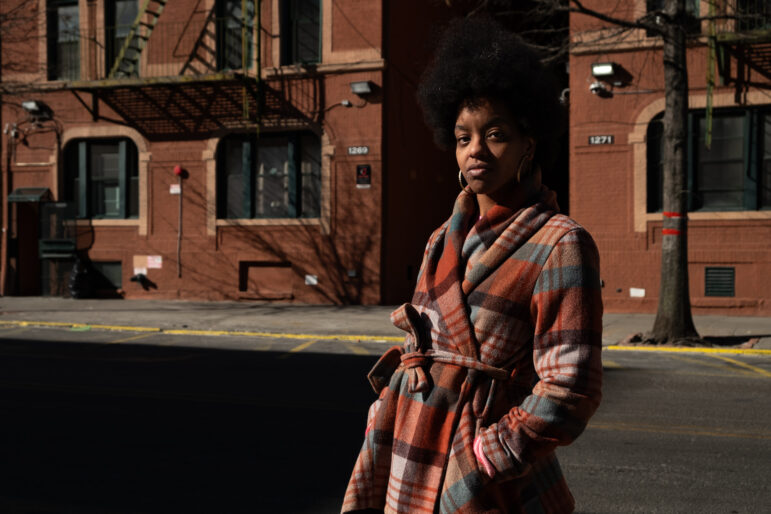Jails, it should go without saying, are not the ideal therapeutic environment for the mentally ill. Aside from the physical menace, crowding and all-around dehumanization, many mentally ill people simply can’t follow a jail’s unbending rules. They land in solitary confinement, setting off a downward spiral of deterioration.
Yet for years judges haven’t had much choice. When a mentally ill person sold drugs, picked someone’s pocket or fought with family members, the court’s only alternatives were releasing offenders back to the same bad situation or sending them to jail. Currently, around 20,000 people with a serious mental illness pass through Rikers Island every year.
But in Brooklyn, judges and prosecutors will soon have a new place to send mentally ill defendants: Starting this month, State Supreme Court Justice Matthew D’Emic will oversee a new “mental health court,” a specialty court for mentally ill people arrested for nonviolent felonies, especially drug crimes.
Authorities in Broward County, Florida, opened the first mental health court in the country in 1997. In its four years, this court has diverted approximately 3,600 people from criminal prosecution; mental health advocates hail the court as a model of therapeutic jurisprudence.
The Broward court’s reputation inspired about a dozen cities nationwide to create their own mental health courts. Last year, advocates for the mentally ill convinced Congress to allocate $4 million–which, according to the National Alliance for the Mentally Ill, should lead to the creation of mental health courts in at least a dozen more cities, including New York.
In mental health courts, as in drug courts, judges order defendants to a plan of therapy rather than jail. A treatment provider develops a plan for defendants, which can include anything from psychotherapy to psychotropic medication, and the court–usually one specially assigned judge–monitors their progress through regularly scheduled court appearances. With one judge watching the case from start to finish, cases don’t shuttle between multiple courts, and treatment programs, knowing they have to answer to a judge, will treat cases with extra care. If defendants successfully complete the program, their charges are ultimately dismissed or reduced. Participation is strictly voluntary, with the courts accepting mentally ill defendants only if they have “opted in” to the program.
Like drug courts, mental health courts use the power of the court to solve a longstanding social problem. For mentally ill defendants, the courts can offer a far more humane and pragmatic approach than traditional criminal courts, because the courts’ goal is helping defendants to get better rather than punishing them with a jail term. “It’s what we jokingly call ADA court–it reasonably accommodates people with a disability,” says Ira Burnim, legal director of the Judge David L. Bazelon Center for Mental Health Law. “It seems, at first blush, like a very positive thing.”
But Brooklyn’s court will stray from the Sunshine State’s successful model in one significant way: In Florida’s court, no one pleads guilty to criminal charges. Judge Ginger Lerner-Wren, who has been in charge of the Broward court since its inception, is adamant that mentally ill people shouldn’t be be forced to plead guilty. “Our interests have always been towards decriminalization of the mentally ill,” she says.
In a controversial move, Brooklyn District Attorney Charles Hynes and Judge D’Emic are planning to require nearly all defendants to plead guilty as a condition of entering the court–even if mental illness contributed to their crime.
“The fundamental goal here is public safety,” says Carol Fisler, Project Director for the Center for Court Innovation, which is developing Brooklyn’s mental health court. “We’re not driven in this by wanting to be soft on criminals.”
_______
Brooklyn’s court wants a guilty plea partly because it will be seeing more serious criminals. Florida’s court, like other mental health courts, accepts only those people who are charged with low-level misdemeanors, such as trespassing or shoplifting. But in New York, where very few people charged with misdemeanors do hard time, the court will only see defendants arrested for nonviolent felonies, especially drug felonies.
With a guilty plea in hand, the District Attorney does not need to prove its case later should things fall apart in treatment. This means less work for the prosecutor and less of a chance that the defendant will end up going scot-free.
The criminal defense bar is also wary of having misdemeanors heard in mental health courts, because whatever treatment the court might order could potentially be far more intrusive in their lives than a misdemeanor prosecution. “I fought hard to keep misdemeanors out of this court,” says Lisa Schreibersdorf, executive director of Brooklyn Defender Services.
In drug courts, people charged with felonies have higher success rates, possibly because they risk serious time if they don’t comply with treatment. “It’s easier to exercise authority on more serious cases,” says Fisler. “Having more at stake in terms of loss of freedom becomes a very powerful motivator for people to stay in treatment.”
D’Emic, too, believes a guilty plea might help motivate defendants to cooperate with treatment. “If a crime was committed,” he says, “[a guilty plea] gives leverage to the court. That leverage can be the key to keeping people in the program.”
But while the threat of another drug count may work as a deterrent to an addict, mental illness does not follow the same rational pattern of cause and effect. In drug courts, a defendant who stops complying with his treatment by buying or taking drugs again also commits a new and independent crime: a new drug offense. A mentally ill defendant who stops taking medication, by contrast, commits no new crime–and, in fact, may have very valid reasons for discontinuing a regimen.
And unlike substance abusers, for whom recognized protocols of treatment exist, some mentally ill people simply don’t respond to treatment. “How can people plead guilty without knowing what the treatment plan is going to be?” asks Schreibersdorf. With mentally ill defendants, says Florida’s Lerner-Wren, “you don’t always know at the very beginning what’s going to work.”
Even Fisler agrees. “With drug courts, there is an expectation of recovery,” she admits. “With mental illness, you can’t expect any particular linear progression.”
That’s especially true of the defendants New York’s mental health court will see. The Brooklyn court is starting out with dually diagnosed mentally ill substance abusers–a group notoriously difficult to treat. In fact, though it’s not widely known, Brooklyn has operated a pilot program just for mentally ill drug users since 1998. So far, the program, dubbed Treatment Alternative for the Dually Diagnosed (TADD), has been less than a stellar success: Of the program’s 243 defendants, 30 percent flunked out and returned to regular criminal court to face sentencing, an unusually high failure rate for an alternative court program.
The new court, however, may have some advantages over TADD. While TADD cases go before all Brooklyn judges, only D’Emic will preside in mental health court. Schreibersdorf hopes the judge will develop an expertise in problems faced by the mentally ill and setbacks in treatment, which will ultimately lead to higher success rates. She’s also optimistic that with mental illness cases consolidated in front of one judge, lawyers and the court will be able to spot trends and learn what programs best serve the defendants.
For his part, D’Emic says he has no intention of sending people to prison simply because they’re not getting better. “If it’s not working for somebody, but it’s not their fault,” he pauses, “you can’t ask more than that from somebody.”
But criminal defense attorneys worry that defendants will have to give up the valuable right to trial in exchange for a chance at treatment, even before they know what that treatment will entail. Drugs used to treat mental illness can have horrendous side effects that might not immediately be apparent, even to an experienced judge like D’Emic.
In drug court, people can recover if they exert enough willpower. But mental illness does not follow as predictable a path. “You can’t apply the same model to mental illness as to drug courts,” says Ron Honberg, legal director of the National Alliance for the Mentally Ill. “Drugs, rightly or wrongly, are more black and white.”
Wendy Davis is a City Limits contributing editor.








